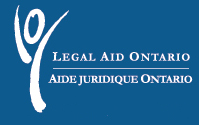As a new Ontario Superior Court ruling sheds light on the challenges of getting legal aid representation in southwestern parts of the province, Legal Aid Ontario is defending its record in the face of tight funding circumstances.
The ruling came in
R. v. House & McGill last week, in which the accused had brought an application to have LAO pay what Superior Court Justice John Desotti deemed to be “extraordinary relief” of a $300-per-hour tariff to counsel Ron Ellis, of London, Ont., and his associate.
Desotti rejected the application, which centred on whether the two accused, who are facing fraud charges in Sarnia, Ont., should get representation well beyond LAO’s Tier 2 rate of $101.01 per hour given the distance between the two cities, the length of the case, the negative effect on the lawyers’ practices, and their inability to find other counsel in the area to handle the matter. LAO, Desotti noted, had already agreed to cover travel and meals for out-of-town counsel.

“To put this in context, we have not had an application like this where there is a legal aid certificate, where there has been travel authorization, and yet the accused is unable to find local counsel or any counsel outside of Lambton County other than Mr. Ellis and his associate Mr. Skinner who have their law office in London,” Desotti wrote.
Desotti rejected the application, noting the case “would not meet the threshold for an order designating specific counsel such as Mr. Ellis and Mr. Skinner as the only available competent counsel.”
The case comes as funding woes at LAO are making the news once again (see “
LAO not living up to boycott bargain, lawyers say”). But in a recent
presentation by LAO CEO Bob Ward and vice president David McKillop to lawyers in Ottawa and Brockville, Ont., the pair highlighted the organization’s ongoing challenges. In particular, they noted the decline in legal aid certificates to 100,387 in 2010-11 from 111,018 in 2005-06. They project the number will increase to 102,857 during the current fiscal year. Limits on the number of certificates issued, of course, are part of what has frustrated lawyers who earn less from legal aid work as a result despite the ongoing increases in the hourly tariff.
At the same time, Ward and McKillop noted the increasing concerns over the financial eligibility criteria, which set the legal aid income threshold for a single person at $10,800 or less per year. They said the certificate guidelines date back to 1995, when the government reduced them by 22 per cent. While it’s the government that sets the eligibility rates, they said LAO’s goal for this year is to conduct research “to support a plan for increasing financial eligibility over the next few years and options for funding any potential increase.”
On a positive note, Ward and McKillop reported a reduced deficit of $8 million, down from $29 million. At the same time, they noted the tariff will increase by an additional 22 per cent during the next four years and that funding rates for experts have gone up by $1 million. They also touted LAO’s move towards handling more services through its call centre and 56 courthouse locations as having improved client services.

 “To put this in context, we have not had an application like this where there is a legal aid certificate, where there has been travel authorization, and yet the accused is unable to find local counsel or any counsel outside of Lambton County other than Mr. Ellis and his associate Mr. Skinner who have their law office in London,” Desotti wrote.
“To put this in context, we have not had an application like this where there is a legal aid certificate, where there has been travel authorization, and yet the accused is unable to find local counsel or any counsel outside of Lambton County other than Mr. Ellis and his associate Mr. Skinner who have their law office in London,” Desotti wrote.